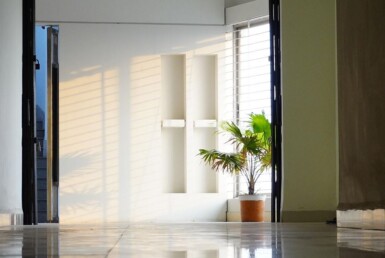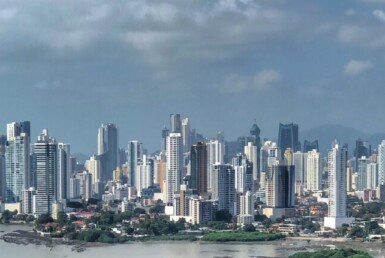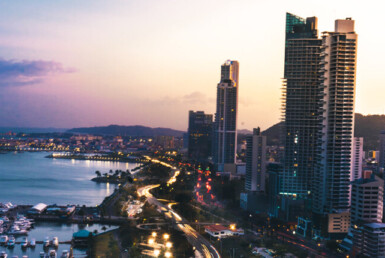The 10 Basic Things to Know Before Buying Real Estate in Panama

Panama has become a highly sought-after destination for both tourists and expats, and its real estate market is equally interesting, offering a mix of beachfront properties and city apartments, or even cozy homes.
If you’re considering buying property in Panama, here are the 10 basing things to understand before moving forward:
- Foreigners Can Own Property in Panama
One of the biggest advantages of purchasing real estate in Panama is that foreigners have the same property rights as Panamanian citizens. This makes the process straightforward for international buyers. There are no restrictions on the amount or type of property you can own.
- Research the Right Location
Panama offers a wide range of property types and locations, from bustling city centers to tranquil beach towns and lush mountain communities. Each area offers its own lifestyle and investment opportunities. Panama City is known for a good nightlife, modern infrastructure, closeness to work areas and business opportunities, while places like Coronado or other beach areas offer more relaxed living with access to nature.
- Understand the Property Purchase Process
The property buying process in Panama is practically straightforward but may differ from what you are used to in your home country. After you find a property, you’ll sign a “Promise to Purchase” agreement, which is a formal contract between buyer and seller. This is followed by a deposit, typically 10% or 20% of the property price. After due diligence and checking that the title is clear, you can sign the final purchase agreement. Hiring a real estate agent to guide you through the process would be ideal to make sure it is a fair and simple transaction.
- Check for Clear Property Titles
Not all properties in Panama have clear titles, and it’s crucial to ensure that the property you’re buying has a clean and clear title. Some rural and beachfront properties may be untitled, but that doesn’t necessarily mean you can’t purchase them. You just need to be aware of the type of ownership you are getting into. Always work with a real estate agent or a lawyer to verify that the title is free from any legal encumbrances or disputes before finalizing your purchase.
- Understand Property Taxes
Panama has a favorable tax system, making it an attractive option for real estate investment. The property tax rate in Panama is generally low compared to other countries, with properties valued under $120,000 being tax-exempt. Above that threshold, taxes increase on a sliding scale, but remain reasonable. Additionally, Panama offers tax exemptions for new constructions, known as property tax exonerations, which can last for up to 20 years, depending on the property type.
- Be Aware of Closing Costs
In Panama, closing costs are typically around 5% to 10% of the property’s purchase price. These costs include legal fees, notary fees, registration fees, and a transfer tax, which is usually 2% of the property’s value. It is important to ensure to budget for these costs in addition to the purchase price of the property.
- Consider Financing Options
Financing is available for both local and foreign buyers, but the terms may differ. Panamanian banks typically offer mortgages with loan terms up to 30 years, and interest rates range from 5% to 7%. However, securing a mortgage as a foreigner might require a more extensive application process, including providing proof of income, residency status, and other documentation. Some buyers choose to finance their property purchase through home equity loans from their home country or buy in cash to avoid getting a mortgage in Panama.
- The Benefits of Panama’s Residency Programs
Panama offers attractive residency programs for foreign property buyers. The most popular option is the Friendly Nations Visa, which allows citizens of select countries to apply for permanent residency after purchasing property or starting a business. Another option is the Pensionado Visa, designed for retirees who can demonstrate a minimum monthly income of $1,000 or the qualified investor, who can get a residence after purchasing a real estate property.
- Utilities and Maintenance Costs
Before buying property, you should always consider the costs of utilities and maintenance. In Panama, electricity costs can be relatively high, especially in areas that require air conditioning year-round. However, water, gas, and internet services are generally affordable. In terms of maintenance, if you’re purchasing a condo or apartment, you will likely need to pay a monthly maintenance fee, which covers building upkeep, security, and shared amenities like pools or gyms.
- Work with Local Experts
The Panamanian real estate market can be complex, and working with a trusted local real estate agent and lawyer is highly recommended. Local experts understand the intricacies of the market, know the areas well, and can help you find the best deals while ensuring that all legalities are handled properly. A real estate agent can also assist with navigating Panama’s bureaucracy, which can sometimes be challenging.
Are you looking for an apartment in Panama?
We make sure that our clients get the best listing options based on their budget and needs:
- Multiple choices.
- Excellent locations.
- Service and support in buying and selling.




